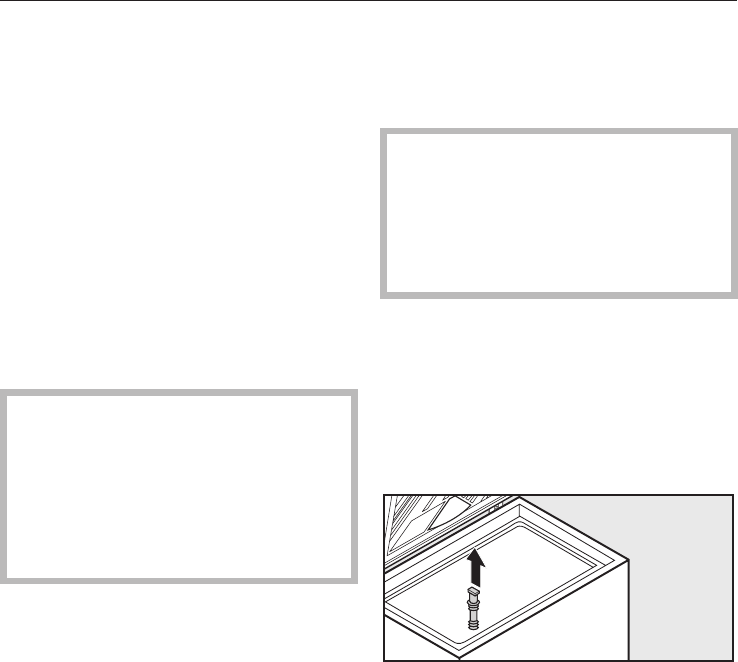
"Stop Frost" system
In normal use, ice and frost will form on
the evaporator plates. If allowed to
accumulate, this will impair the
efficiency of the freezer section and
increase the consumption of electricity.
The "Stop Frost" system reduces the
build up of ice and frost by approx.
70 % in comparison to other
appliances. Moisture entering the
appliance is quickly collected and
removed. This means that it is not
necessary to defrost the appliance
nearly as often.
Do not scrape ice and frost off,
and do not not use any sharp edged
or pointed instruments to aid the
defrosting process.
They will damage the evaporator,
causing irreversible damage to the
appliance.
The freezer should be defrosted from
time to time. It must be defrosted if a
layer of ice approx. 0.5 cm thick has
accumulated. It is best to defrost when
only very little food or no food at all is
left in the appliance.
Before defrosting
^
Switch on the Super freeze function
approx.1 day before defrosting to
ensure frozen food retains its cold
reserve for longer when taken out of
the freezer.
^
Remove the frozen food from the
freezer and place it in another
freezer, or place the cool pack on it,
or in a cool box, or wrap it in several
layers of newspaper or cloths and
store in a cool place until the freezer
is ready for use again.
To defrost
Carry out the defrosting procedure
as quickly as possible if food has
not been placed in another freezer.
The longer the food is left out at
room temperature, the faster it
defrosts.
^
Switch the appliance off.
^
Disconnect it from the mains.
^ Place a freezer tray or a flat container
under the defrosting outlet. Any
defrosted water will then collect in the
tray/container.
^
Wait until the stopper has defrosted,
and then pull it out of the floor of the
appliance.
^
Leave the lid of the freezer open.
To speed up defrosting, two bowls of
hot water (not boiling), with plates
underneath them, can be placed in the
appliance.
Defrosting
25


















